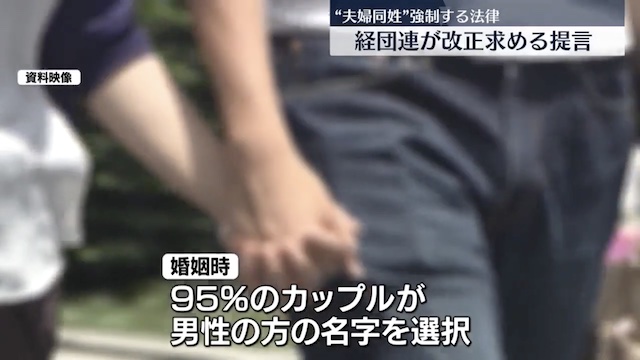Jun 11 (News On Japan) - The Japan Business Federation (Keidanren) has released a proposal seeking the amendment of the current law that mandates married couples to choose one surname upon marriage.

Masakazu Tokura, chairman of Keidanren, stated, 'Considering societal and global trends and the advancement of women in Japan, we must push forward. We hope for swift discussions on this matter. This proposal reflects that desire.'
Under the current law, couples are required to unify their surnames upon marriage, with 95% of couples opting for the husband's surname.
This has led to criticism that the burden of inconvenience and disadvantage due to name changes disproportionately falls on women, prompting Keidanren to advocate for legal reform.
According to a Keidanren survey, 91% of companies allow employees to use their maiden names informally. However, issues frequently arise, such as the inability to use informal names on contracts.
Other complications include the inability to use informal names for registrations or patents. Furthermore, companies face significant challenges from an operational standpoint, as they must match employees' legal names with their family registers for tax and social security procedures. Keidanren views this as a critical issue that cannot be ignored.
Source: 日テレNEWS















